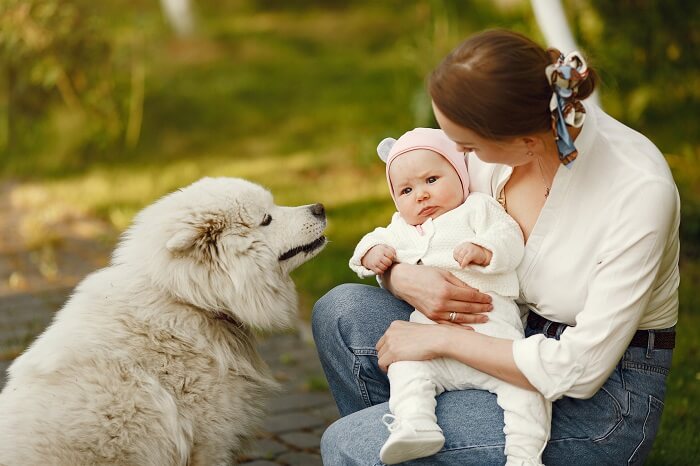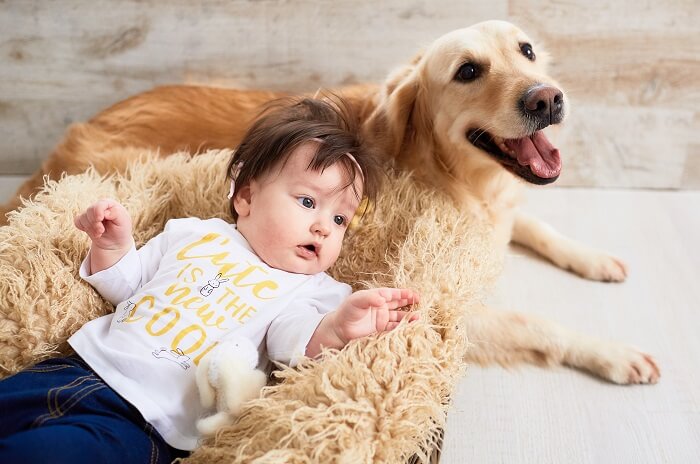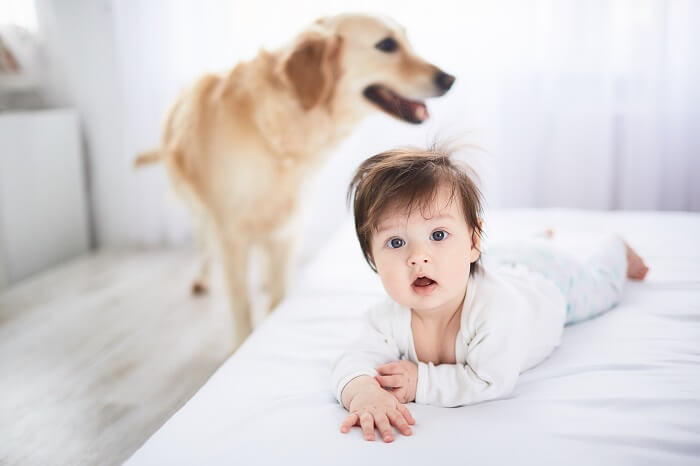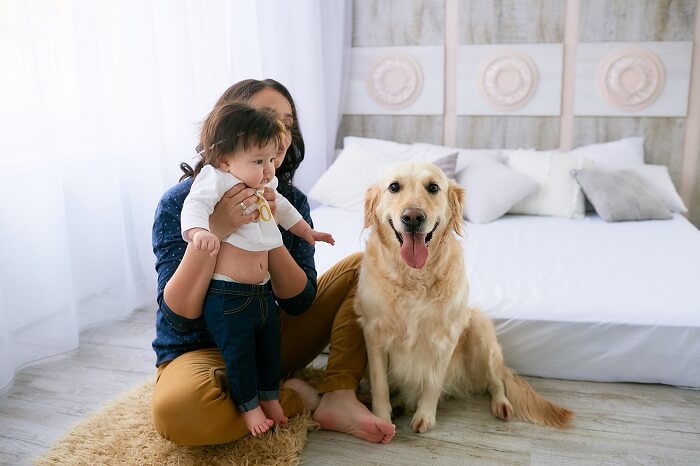The Hygiene of Keeping Pets and Its Impact on Newborn Babies
The presence of pets in a household can bring joy, companionship, and numerous health benefits. However, when it comes to newborn babies, concerns about hygiene and potential risks may arise. This article aims to provide informative content regarding the hygiene considerations of keeping pets in homes with newborns. It will discuss the benefits of pet ownership, and potential risks, and offer practical guidelines to ensure a safe and healthy environment for both the baby and the pet.
Benefits of Pet Ownership

Pets can offer several benefits for families, including newborn babies. Some key advantages of pet ownership include:
Emotional well-being: Pets can provide emotional support, and companionship, and help reduce stress and anxiety for family members, including newborns.
Boosting the immune system: Studies suggest that early exposure to pets can strengthen a child's immune system, potentially reducing the risk of allergies and asthma later in life.
Social development: Interacting with pets can foster social skills and empathy in children as they learn to care for another living being.
Understanding Potential Risks
While the benefits of pet ownership are significant, it is crucial to understand and manage potential risks. The following risks should be considered:
Allergies: Some newborns may develop allergies to pet dander, fur, or saliva, which can lead to symptoms such as itching, sneezing, or respiratory issues.
Infections: Pets can carry bacteria, parasites, or viruses that may pose a risk to newborns, particularly if proper hygiene practices are not followed.
Injury: Accidental scratches or bites from pets can occur, especially if the pet feels threatened or provoked.
Maintaining a Hygienic Environment

To ensure a hygienic environment for the newborn and mitigate potential risks associated with pet ownership, the following guidelines should be followed:
Regular veterinary care: Ensure your pet receives routine check-ups, vaccinations, and appropriate parasite control to minimize the risk of transmitting diseases to the baby.
Hygiene routines: Maintain good personal hygiene by washing hands thoroughly with soap and water after handling pets, cleaning litter boxes, or scooping pet waste.
Pet grooming: Regularly groom your pets, including brushing their fur, trimming nails, and bathing them as recommended by your veterinarian. This helps reduce the shedding of fur and dander in the environment.
Restricted access: Limit the pet's access to areas where the baby spends most of their time, such as the nursery or crib, to minimize direct contact.
Clean surroundings: Clean and vacuum your home regularly, paying special attention to areas where pet hair and dander accumulate, such as carpets, upholstery, and pet bedding.

Frequently Asked Questions (FAQs)
Here are some more FAQs and information related to keeping pets with newborn babies:
Q1: Can having a pet increase the risk of allergies in newborns?
A1: While exposure to pets early in life can reduce the risk of allergies, some newborns may develop allergies to pet dander, fur, or saliva. Monitor your baby for any signs of allergies and consult a pediatrician if necessary.
Q2: Are certain pets safer than others for newborns?
A2: Generally, well-socialized and properly vaccinated pets pose minimal risks. However, it is recommended to consult with your healthcare provider regarding the best choice of pet for your specific situation
Q3: Is it safe to have a pet in the same room as a newborn during sleep?
A3: It is generally recommended to keep pets out of the newborn's sleeping area. This reduces the risk of accidental suffocation, allergic reactions, or potential injuries to the baby. Create a separate sleeping space for your newborn to ensure their safety.
Q4: How can I introduce my pet to the newborn baby?
A4: Introduce your pet to the newborn gradually and under supervision. Allow the pet to sniff and observe the baby from a safe distance. Reward your pet for calm behavior and provide them with positive reinforcement. Always prioritize the safety and well-being of both the baby and the pet during these interactions.
Q5: Are there specific precautions for families with pets and newborns during the COVID-19 pandemic?
A5: While there have been rare instances of pets contracting the COVID-19 virus, there is no evidence of pets being a significant source of infection. However, it is still advisable to practice good hygiene, such as washing hands before and after interacting with pets and following general COVID-19 guidelines provided by health authorities.
Q6: Can pets transmit diseases to newborns?
A6: While the risk is low when proper hygiene practices are followed, pets can potentially transmit certain diseases to newborns. Examples include toxoplasmosis, which can be contracted through contact with contaminated cat feces, and certain bacterial infections. Regular veterinary care, maintaining a clean environment, and practicing good personal hygiene can significantly reduce these risks.
Q7: Should I give up my pet if I have a newborn baby?
A7: In most cases, it is not necessary to give up your pet when you have a newborn. By following appropriate hygiene measures, regular veterinary care, and responsible pet ownership, you can create a safe and healthy environment for both your pet and your baby. However, if you have concerns about allergies, aggression, or specific health risks, it is advisable to consult with your healthcare provider or a professional pet behaviorist.
Q8: How can I manage pet allergies in a newborn?
A8: If your newborn develops allergies to your pet, consult with a pediatrician for appropriate management strategies. These may include keeping the pet out of specific areas of the house, using air purifiers, regularly cleaning and vacuuming, and ensuring good ventilation in your home.
Q9: How can pets contribute positively to a newborn's development?
A9: Pets can play a positive role in a newborn's development by promoting empathy, social skills, and emotional well-being. Interactions with pets can teach responsibility, provide comfort, and enhance the overall nurturing environment in the household.
Conclusion
Keeping a pet in a home with a newborn baby can be a rewarding experience, offering numerous benefits for the family. By understanding the potential risks, following proper hygiene practices, and seeking professional advice when needed, it is possible to create a safe and harmonious environment where both the baby and the pet can thrive. Responsible pet ownership, regular veterinary care, and good personal hygiene are key factors in ensuring a hygienic and healthy space for the entire family.


